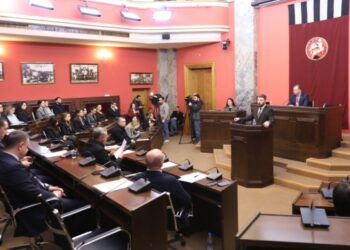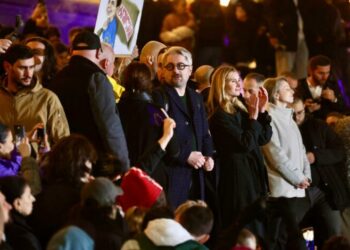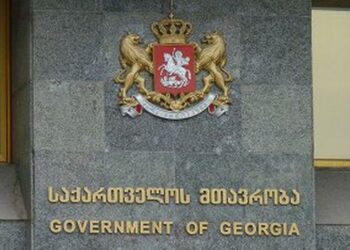Violence and conflicting narratives continue to dominate the war between Russia and Ukraine, with new attacks, territorial claims, and accusations exchanged on both sides.
Ukrainian President Volodymyr Zelensky called the deadly Russian airstrike on Sumy a “savage” assault that deliberately targeted civilians on “ordinary streets.” The Ukrainian leader said “many people have been wounded” and that at least four were killed, adding that the attack showed that Russia is not serious in pursuing peace.
Zelensky wrote on X: “It is obvious: without global pressure, without decisive actions from the United States, Europe, and everyone in the world who has the power – Putin will not agree even to a ceasefire. Not a single day goes by without Russia striking Ukrainian cities and villages. Every day, we lose our people to Russian terror. Every day, Russia gives new reasons for tougher sanctions and stronger support for our defense. I am grateful to everyone around the world who is promoting exactly this agenda: sanctions for aggression and the killing of people, and assistance in defending the lives of Ukrainians.”
Sumy is about 30 kilometers from the Russian border, and was a vital logistics hub for Ukraine’s months-long offensive into Russia’s Kursk region.
The city has come under intense Russian bombardment after Vladimir Putin ordered his troops to create a “buffer zone” inside the Sumy region, which borders Russia.
Ukraine’s SBU security service claimed responsibility for a significant strike on the strategic Crimea Bridge, stating it detonated explosives targeting underwater supports, causing what it described as “severe damage” to the structure. The bridge serves as a key link between mainland Russia and the annexed Crimean Peninsula, and has been a repeated target throughout the conflict.
In response, the Russian Ministry of Transport stated that “standard operations” had resumed after “temporary closures” earlier in the day. Russia blamed Ukraine for the explosion on the Crimea Bridge, although the Kremlin insisted there was no damage. Russian Foreign Ministry spokeswoman Maria Zakharova accused the West of being complicit in what she labeled “terrorist attacks” against civilian infrastructure in Russia, alleging that NATO and Western nations not only supply weapons to Ukraine, but also provide coordinates for such strikes.
Meanwhile, the Russian Defense Ministry reported that its forces had taken control of Kindrativka in Ukraine’s northern Sumy region and the village of Ridkodub in the eastern part of the country, indicating continued pressure on Ukrainian defenses along multiple fronts.
Tragedy also struck in the Kharkiv region, where Ukraine’s Interior Ministry confirmed that two civilians were killed when fires broke out following a Russian attack on homes in the village of Chistovodivka.
The attacks came as a second round of peace talks between Moscow and Kyiv ended in Istanbul without a significant breakthrough – only a deal to swap more prisoners of war.
Negotiations between Ukrainian and Russian delegations in Istanbul ended without agreement on a ceasefire on Monday, but with both sides agreeing to exchange more prisoners.
Ukraine’s president said the two sides had agreed to exchange 1,000 prisoners of war each, with the possibility of swapping an additional 200.
Zelensky did not take part in the talks but spoke out during a visit to Lithuania, calling for stronger sanctions on Russia if it did not agree to a ceasefire.
He said his negotiators had given their Russian counterparts a list of nearly 400 abducted Ukrainian children that Kyiv wanted Moscow to return home, but that the Russian delegation agreed to work on returning only 10 of them.
An agreement had been made to return the remains of killed service personnel, but this would take careful preparation, said Ukrainian negotiators. Russia proposed a ceasefire of two or three days in some areas of the frontline to allow the Russian army to collect the many bodies it has left lying on the battlefield.
Ukrainian officials said the Russians rejected Kyiv’s call for an unconditional ceasefire of at least a month, instead handing over a proposal that would need to be studied by Kyiv. The Ukrainians suggested the talks should reconvene towards the end of June.
As the war in Ukraine intensifies, key Western allies have announced increased military support, focusing on advanced weaponry and air defense systems to bolster Ukraine’s resistance against Russian aggression.
UK Secretary of Defense John Healey announced that Britain will allocate £350 million ($473.5 million) to supply Ukraine with 100,000 drones. This forms part of the United Kingdom’s broader £4.5 billion ($6 billion) military aid package for 2025. Healey emphasized that the drones would play a crucial role in surveillance, strike capability, and frontline support for Ukrainian forces.
In parallel, German Defense Minister Boris Pistorius revealed a new initiative aimed at enhancing Ukraine’s air defenses. Speaking to reporters, Pistorius said Germany is lobbying the United States and other partners to contribute additional Patriot or equivalent air defense systems. The initiative is intended to shield Ukrainian infrastructure and cities from frequent Russian missile and drone attacks.
Compiled by Ana Dumbadze














